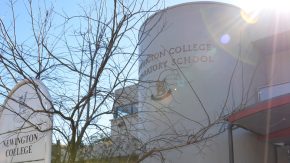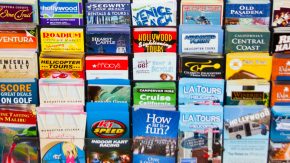Does programming and learning code have a place in our school curriculum?
This is a hot topic at the moment in education and needs to be discussed by all stakeholders. Does teaching coding and programming to primary students benefit the educational experience and enhance outcomes?
The answer is yes, and there are many reasons why. Let me build a little bit of a picture of Wyvern at the moment for you.
Currently Year 1 students at Wyvern are spending Friday afternoon’s programming Bee Bots. Now this might sound like a lot of fun but there is something deeper in this learning experience. Whilst the boys are excited and engaged we are teaching concepts of, and building their capacity to, work mathematically. The students are run through the specifics of an algorithm and also the outcome if there is a mistake. At a Year 1 level students are already collaborating and problem solving complex algorithms in order to have their Bee Bot complete a task. Whilst learning about algorithms students are also building their learning power muscles. Guy Claxton’s Building Learning Power Framework is tied directly to the sessions. Revising errors, displaying empathy and listening to others, perseverance and managing distractions are high on the agenda. Even if coding is not a particular interest of the student, the 21st Century learning skills that are being developed in these sessions are of a high quality.
Let’s have a look at the top end of our school. Boys in Year 6 are learning how to write Java Script. With the use of Arduino microcontrollers, students are writing code to perform tasks such as turning lights and motors on, understanding complex algorithms and, you guessed it, building their learning power. It has been amazing to see the engagement of the students through these sessions and reading their weekly reflections has demonstrated that all boys are challenged and motivated to continue to learn. At the same time as learning about programming students are drawing clear links to their science unit on Power and Electricity. The blended learning experience here offers another insight to new knowledge and another medium to express their understanding. Being a part of these lessons allows me to see the interaction between peers and I can draw strong connections to my own collaborative practices at school. These students are essentially learning how to participate effectively to achieve a desired outcome. Sound familiar to what people in the workforce do every day?
If you’re thinking that coding would be something great for your son to experience in their spare time but don’t know where to look, then I have a great starting point for you. If you head on over to code.org you’ll be greeted with a large collection of age appropriate games that build coding knowledge. The service is free and is a lot of fun. For students that have had a little experience with coding I encourage them to look into pencilcode.net. Here they will be challenged and engaged in higher levels of programming. If this is still not a challenge I encourage your son to visit me in my office and have a look at the Arduino’s that the Year 6 boys are using.
I look forward to continuing the coding conversation with everyone throughout the year.
Tony Cross
eLearning – Wyvern House and Lindfield Preparatory School






